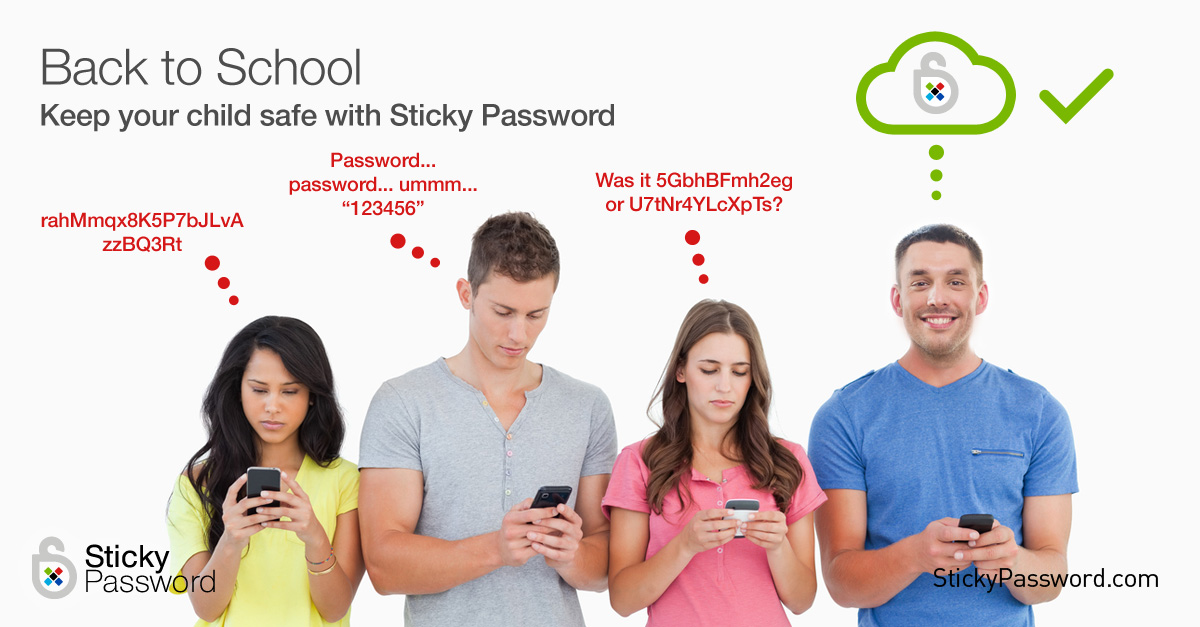Back to school do’s and don’ts
Security is a habit
Now that summer is coming to an end and the new school year is under way, it’s a great time for a quick refresher of a few good habits that will increase your kids’ online security.
When they are small, we tell our kids not to talk to strangers. As they get older, we tell them not to forget to lock the front door when they go out, and we warn them about what could happen if they went into a bad part of town late at night.
Over time, these become the good habits that guide them in their everyday lives. And, while we don’t often think about it, a big part of our personal security is based on habits.
Individual security requires your active involvement and here are a few basic do’s and don’ts that will help protect your child and you from identity theft, or from becoming a victim of a hacker.
3 Do’s
- Do stay informed about scams and data breaches that are reported in the news. Just like you pay attention driving down the road to avoid potholes and other dangers, you need to be aware of what to watch out for online so that you know how to react to protect yourself and your loved ones. You don’t need to be an expert, but knowing that Yahoo, or Adobe, or any of your online vendors’ accounts were attacked can be the difference between a hacker getting away with your stuff and being safe. Knowledge is power.
- Do make sure that you use a unique password for each of your online sites. Unless you have a rain man-like ability to memorize a deck of cards, the easiest and most secure way to do this is to use a password manager. With a password manager, you’ll have a different strong, secure password for each of your sites. With a password manager like Sticky Password, all you have to remember is one strong Master Password, and all your other passwords are safe – protected by strong encryption (AES-256 bit). And because security is based on habits, this is a good habit you can never begin too early.
- Do make sure that you are using the right security tools, and that your operating system and other software is up to date. At a minimum, you should be using an antivirus program on your computer, along with a firewall, anti-malware program, and a password manager. Have a basic understanding of what each of the programs does, so that you can react appropriately when you get a pop up message. Using software that isn’t up to date gives the bad guys an easy way to access your computer: don’t give them that opportunity.
3 Don’ts
- Don’t think that the Internet is private. The saying what happens in Vegas stays in Vegas doesn’t apply to Facebook and other social media networks. The instant you post a picture, video or anything online, you are no longer in control of it. Even if the service provider (Facebook, Twitter, YouTube, Instagram,…) where you posted it would be willing and able to delete it, it’s already ‘out there’ and that means others have already have had the chance to copy or share it. Simply said: don’t post it online unless you want the world to see it!
- Don’t go phishing. Phishing scams try to get your personal identity data by tempting you to click on dangerous links or to get you to send them your personal information. In general, your rule should be to not click on any link that comes from anyone you’re not familiar with or anything that looks unusual. For any bank or financial sites, we recommend calling your bank to make sure the email came from them. Find out more about how to recognize phishing scams.
- Don’t leave stuff unattended. This one involves the physical security of tablets, smartphones, notebook computers and even textbooks. Kids of all ages (and even adults) often don’t think that someone would want to steal their stuff. After all, what could happen in the 2 minutes they’ll be away getting something at the Starbucks counter, or going to the restroom?! A lot – but the bad guys don’t even need that long. (A young friend just had his MacBook stolen at college in a room full of students. In just the few seconds that he wasn’t paying attention someone walked off with it.) Even if they don’t steal your computer, they might simply steal your data from it.
Follow these tips and get your children started on the good habits that will make them safer and more secure throughout their lives.



